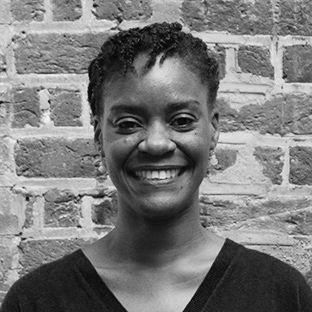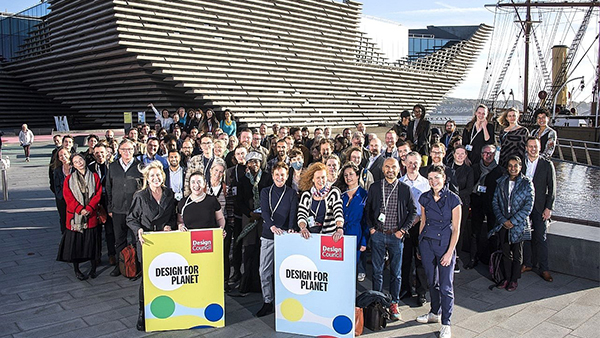“Peter pay fuh Paul, Paul pay fuh all” is a statement in Trinidadian local dialect that means you may be punished for someone’s actions. The local sayings and folklore of my native Trinidad subconsciously came to mind over the past week as heads of governments and their delegations met in Paris.
As the 21st United Nations Conference of Parties (COP21), known as the Paris conference on Climate Change, nears its conclusion today, small island states are keenly observing the proceedings to see what the final outcome of the agreement will be. At similar conferences, natural divisions arise between the wealthy developed nations and emerging economies that wish to maintain or attain increased growth and economic development. The views of small island states sometimes get lost in the shuffle. However, on this issue in particular they are more likely to be the loudest voices in the room.
Although the world’s largest emitters of greenhouse gases are China, United States and European Union followed closely by India, the burden of climate change are borne most severely by small island states. They are at the frontlines and are most vulnerable to its effects.
Small island states are characterized by having populations of under 1.5 million, a small geographical size and limited resources. They have highly open economies relying mainly on foreign trade as a key component to economic growth and development. They are vulnerable to economic shocks, susceptible to income volatility if there is decline to a major industry and also susceptible to natural disasters such hurricanes, droughts, typhoons and volcanic eruptions.
The consequences of climate change to small island states are far reaching, mostly threatening their economic security. The warming of the upper layer of the oceans and ocean acidification have damaged coral reefs and contributed to bio erosion negatively impacting beaches, key tourist attractions and the tourism industry as a whole. This, coupled with rising sea levels, endangers fragile ecosystems and coastal economic activity such as subsistence and commercial fishing.
The volatility of weather conditions brought about by climate change also wreaks havoc over the food supply. It threatens food crops (located primarily in small scale subsistence farms), the country’s basic food supply and its ability to feed itself.
Rainfall is a primary source of water for many small island states given the limited availability of fresh water. Climate change increases the likelihood that there will be extreme weather events and unpredictable patterns to weather conditions which jeopardize the reliability of rainfall - ricocheting throughout the island’s economy and welfare.
Of most interest to small states in the draft agreement on Climate Change is the issue of financing. In previous international fora, small island states have advocated for wealthy countries to contribute significantly to financing to recognise the effects of climate change on derailing significant development gains, particularly with reference to natural disasters. They also champion the need for funding to implement mitigation and adaption strategies many are unable to finance due to current fiscal challenges.
Small island states are hoping that the agreement will show a legally binding commitment to mobilise the $100 Billion fund pledged by wealthy states in Copenhagen at COP15 in 2009. Another idea proposed is the innovative, but radical, international tribunal for climate justice which will adjudicate over cases when rich nations fail to honour their commitments to any agreement.
In addition to financing, small island states want the international community to agree to a legally binding agreement to cut the emission of greenhouse gases. For them voluntary submissions are not enough. Although viewed with much scepticism (many think reducing emissions will not result to changes in global warming i.e. that some impact of climate change is already ‘locked in’), for many small island states no reduction will hasten their disappearance from the sea. As sea levels rise, low laying islands such as the Maldives, Kiribati and the Marshall Islands, know that they may soon have to flee their homes and become climate refugees in order to escape the effects of climate change. Sadly this is already occurring especially in the Pacific Region where more than 70% of households in Kiribati and Tuvalu, and 35% in Nauru felt that migration would be a likely response if droughts, sea level rise or floods worsened.
The RSA’s Social Brain Centre report on Climate Change illustrates ‘stealth denial’, where some of us may intellectually accept climate risk but not really feel it or take responsibility for it. For citizens of these small island states climate risk is their reality with each passing day.
So the time for action is now.
Or else the small island states of the world will pay the ultimate price for the actions of the wealthier nations. I hope that today, I am proven wrong and that Peter does not pay for Paul and the global community view the seas, oceans and atmosphere as global commons that are critical to the survival of all countries – big and small.
Related articles
-
A design revolution for the climate emergency
Joanna Choukeir
Joanna Choukeir on Design for Planet, the global gathering of designers during COP26, and the changes design must make.
-
3 ways to talk about climate change and Covid-19
Zayn Meghji
People are making the obvious comparison between the pandemic and the world’s biggest crisis – climate change. But how we make that link will shape our response.
-
What can we learn from Fellows in Southeast Asia
Lauren Orso
In March and April 2019, the RSA's global team will be visiting Singapore, Bangkok and Kuala Lumpur on the hunt for social innovations and exploring potential for an action-oriented Fellows network.




Be the first to write a comment
Comments
Please login to post a comment or reply
Don't have an account? Click here to register.